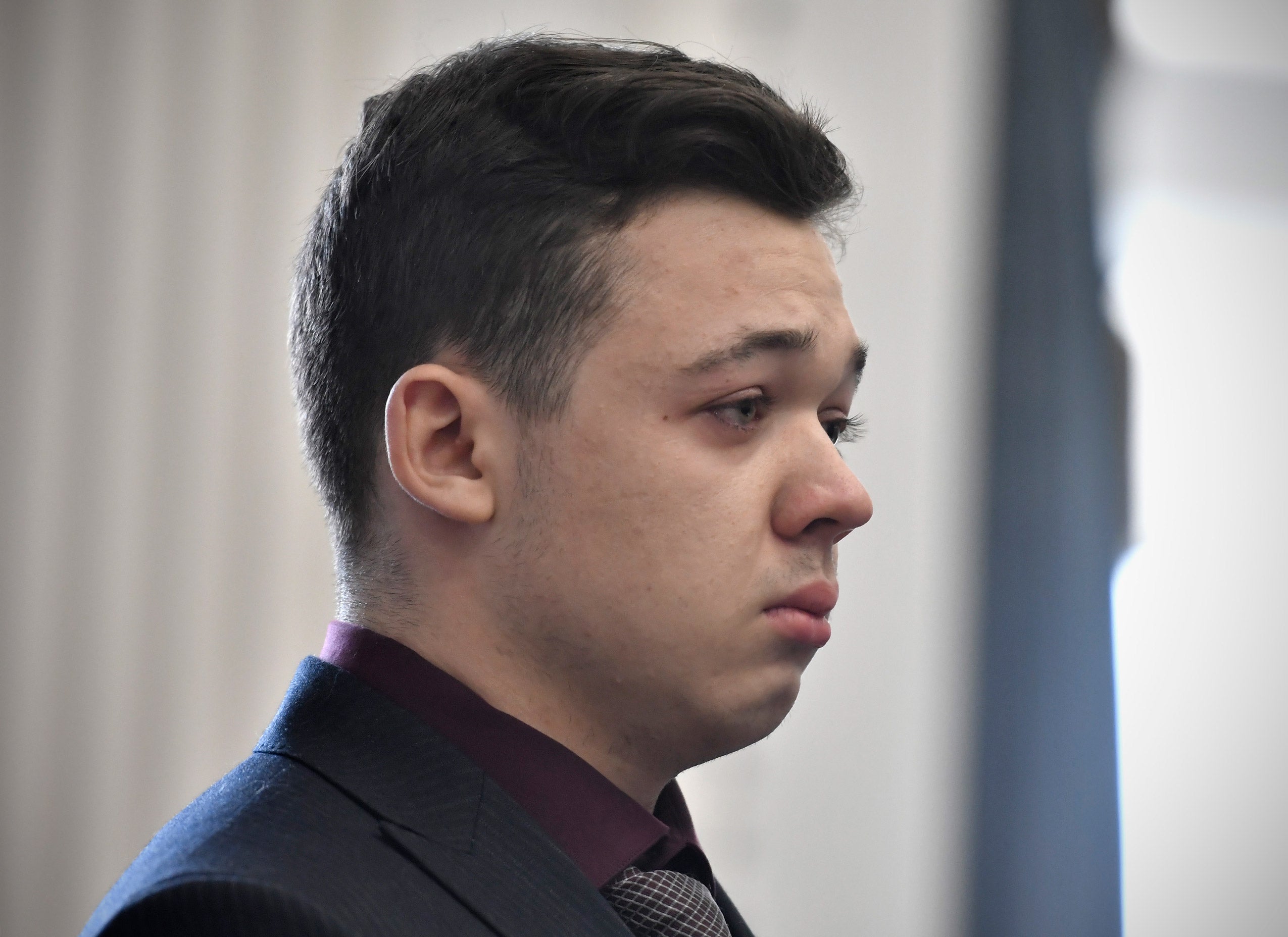After deliberating for 26 hours, a jury in Kenosha, Wisconsin acquitted Kyle Rittenhouse Friday on all charges related to the shooting of three men, two fatally, amid disorderly protests in August, 2020. Harvard Law Today spoke with retired federal judge Nancy Gertner, now a senior lecturer on law at Harvard Law School, about the verdict, how the trial was conducted, and comparisons to the ongoing trial of the men who killed Ahmaud Arbery.
Harvard Law Today: Were you surprised by the verdict?
Nancy Gertner: No. The judge had put his finger on the scale. The opening salvo — when the judge said that the government couldn’t call the victims victims, but could call them rioters, arsonists, and protesters — opened the door. That said to the defense that it’s okay to demonize the victims, in part by focusing on what they did right before they were shot. But that also opened the door to demonizing the victims about what they were doing in Kenosha. And that broader lens continued to be part of the problem. One example was when the videographer, who should have gotten on the stand and said, ‘I took this video. Here’s what I saw.’ was permitted to testify about Antifa. And during the closing arguments, the defense kept talking about how Rittenhouse came to prevent the protestors from doing again that night what they had done before. It was a trial of the protestors. And the number of times that the judge yelled at the prosecutor also silenced him in a way that shouldn’t have happened. There are things the prosecutor could have and should have objected to that he didn’t. So, I was not surprised at all.
HLT: How do you think the prosecution and defense did?
Gertner: Well, I think the defense heard the judge’s direction. We know that the defense, by the way, had a jury consultant. I would assume that the jury consultant was probably picking jurors according to politics. I thought that the tone of the prosecution was businesslike, that the prosecution was terrific. But there were times when he didn’t object. And I wondered whether there were times that he wasn’t objecting because, if he did, he would draw the judge’s ire.

HLT: What do you think the biggest challenges were for the jurors?
Gertner: I think the issue was the moments before Rittenhouse shoots. He said [Joseph] Rosenbaum reached for his gun. And I think he said that with respect to [Anthony] Huber as well. Now, I’ve been thinking a lot about that. If reaching for your gun, the gun of a 17-year-old civilian, was seen as hostile, we are in very dangerous territory. But the jury essentially went along with the notion that reaching for his gun meant not that he’d be disarmed and the whole situation de-escalated, but rather that that would mean he would be shot. And the jury had to dissect that: Does reaching for his gun mean they were going to shoot him, or does it mean he would be disarmed? And if, at this point in trial, you’ve already been programmed to think that the protesters were evil, you’re going to err on the side of saying that reaching for his gun was aggressive.
HLT: That’s interesting because reaching for a gun is also one of the facts in another trial that’s happening in Georgia right now related to the killing of Ahmaud Arbery.
Gertner: Right. The defense in that case has a more difficult time, because the defendants were chasing Arbury. That was not the case with Rittenhouse. And there’s also the racial difference. There, a jury could easily believe that when three white guys with guns are chasing a Black guy, the Black guy’s effort to get the gun is to protect himself. So, the fact that they were clearly the aggressors, that they were chasing him, that there were three of them, and that there was really no evidence that he had done anything wrong could mean a jury makes a different decision.
HLT: So, what is the legal standard?
Gertner: There is a rule that if you provoke an encounter, you can’t then use that provocation to use deadly force. If you are the provoker, you lose the right to self-defense. But there’s always an “unless” clause. So, if you’re the provoker, you lose the right to self-defense, unless the person you provoked looks like he was about to use deadly force on you; then you have a right to respond. But the difference between Arbery and Rittenhouse is that Rittenhouse had a narrative of why he was where he was. It was not a narrative that particularly satisfied me. But he could paint an interesting picture of what he was trying to do. The three men in Arbery’s case did not have that at all. So, they have a much harder provocation defense. In their case, they clearly provoke, and he responds in order to keep from being shot. But it’s an all-white jury, so who knows.
HLT: Does the verdict send any message?
Gertner: It does in the way that the verdict in the Rodney King case did. So, anyone who watched that video wondered ‘how the hell could that have been justified?’ But the police officers successfully argued that there were things that the jury had not seen before the tape was turned on. So, there have been a number of similar verdicts. I don’t think that any future defendant goes into a trial like this and says, ‘I’m going to be acquitted just like Rittenhouse.’ I think that’s unlikely, but it is also incredibly dangerous.
